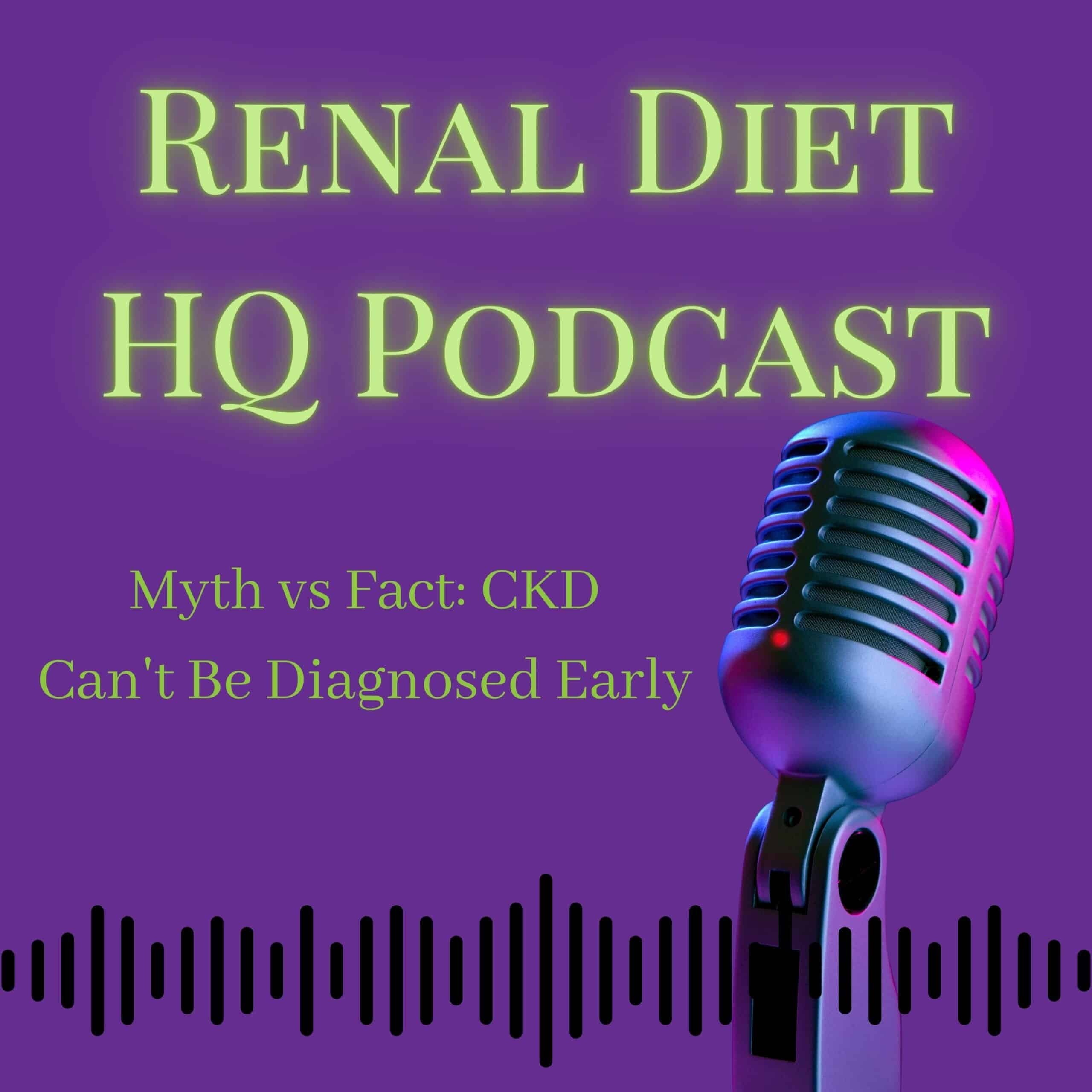Myth vs Fact: CKD Can't Be Diagnosed Early- Podcast
Podcast: Play in new window | Download

Chronic kidney disease (CKD) is a condition that affects millions of people worldwide, gradually impairing kidney function and potentially leading to serious health complications. However, there's a widespread misconception that CKD can only be detected in its advanced stages. In this blog post, we'll debunk this myth and shed light on the importance of early detection in managing CKD effectively.
For More Recipes and Ideas --->> Get Your Free Meals and Recipes That Are Perfect for Pre-Dialysis Diets, Pre-Dialysis with Diabetes, or Dialysis Diets.
Understanding Early Detection
Many people believe that CKD can only be diagnosed when it has progressed to a severe stage. However, this is not entirely true. Early-stage CKD can be identified through routine blood and urine tests, even before symptoms become apparent. These tests can reveal crucial indicators such as protein in the urine or changes in creatinine levels, which may signal that the kidneys are not functioning properly.
Diagnostic Methods
Routine blood and urine tests play a crucial role in the early detection of CKD. These tests are often part of regular checkups and can provide valuable insights into kidney health. Specifically, proteinuria (protein in the urine) and alterations in creatinine levels are key markers that healthcare providers look for when assessing kidney function. Additionally, the estimated glomerular filtration rate (eGFR) is a calculation that measures how well the kidneys are filtering waste from the blood.
Importance of Regular Checkups
Regular checkups are essential, especially for individuals at higher risk of developing CKD due to factors such as diabetes, hypertension, or a family history of kidney disease. By monitoring kidney function through routine tests, healthcare providers can detect CKD in its early stages, allowing for prompt intervention and management. Proactive healthcare measures can significantly improve outcomes for individuals with CKD.
Benefits of Early Detection
Early detection of CKD offers numerous benefits, including the opportunity to start managing the condition sooner. By implementing lifestyle changes, medication regimens, and other interventions early on, individuals with CKD can potentially slow the progression of the disease and preserve kidney function for longer. Moreover, early detection may result in fewer dietary restrictions and a better quality of life for individuals living with CKD.
It's crucial to debunk the myth that CKD can only be detected in advanced stages. Early detection through routine blood and urine tests enables healthcare providers to identify CKD in its earliest phases, facilitating timely intervention and management. By prioritizing regular checkups and proactive healthcare measures, individuals can take control of their kidney health and improve outcomes. If you have any questions or experiences related to early CKD detection, we encourage you to share them in the comments below. Together, we can raise awareness and promote better health for everyone.
Prioritize regular health checkups and discuss any concerns about CKD with your healthcare provider. For more information on CKD detection and management, visit reputable sources such as the National Kidney Foundation or consult with a healthcare professional. Your proactive approach to kidney health can make a significant difference in your overall well-being.








